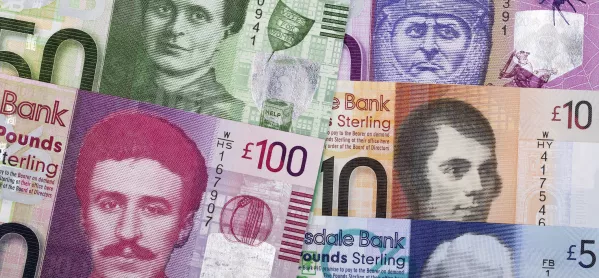Scottish Budget: Teacher pay, child poverty, nurseries
Share
Scottish Budget: Teacher pay, child poverty, nurseries
John Swinney’s wish for a period of stability in Scottish education - despite recent turmoil - has been reflected in a Budget where the government’s headline projects are already well known.
Public finance and digital economy minister Kate Forbes, who spoke to the 2020-21 Budget this afternoon, was also keen to highlight the “game‑changing” new Scottish Child Payment of £10 per week for households living in poverty.
Child poverty: An open letter from a family living in poverty
Teacher pay: How much are teachers paid in Scotland?
Pupil Equity Fund: Almost a third of teachers say £120m fund not working
Early years: Progress on nursery hours - but staffing ‘crisis’ looms
The Budget will fund:
• A teacher pay increase of a minimum of 13 per cent, bringing the starting salary for a fully qualified teacher to £32,994 from April 2020, which the government described as “significantly higher than anywhere else in the UK”.
• Support for improving school attainment and closing the attainment gap, including £120 million for the Pupil Equity Fund.
• Almost £645 million for the expansion of early learning and childcare to 1,140 hours per year, nearly double the current level.
• An “above-inflation increase in resource funding for further education” of 3.6 per cent.
• Real-terms increases in funding for higher education and in the skills and training budget, the latter designed to support an increase in the number of apprenticeships.
The new Scottish Child Payment of £10 per week - which will start payments to eligible households with a child under 6 by the end of 2020, before full roll-out for under-16s in 2022 - is designed to lift 30,000 children out of poverty.
However, the government was accused of not doing enough to tackle child poverty.
John Dickie, director of the Child Poverty Action Group (CPAG) in Scotland, welcomed a £3.5 million increase to the Scottish Welfare Fund and the introduction of the Scottish Child Payment, which is expected to cost £21 million.
But Mr Dickie said the Scottish Welfare Fund has failed to rise with inflation since it was first created in 2013, and that the extra £2.5 million it is set to receive over the next financial year will represent a real-terms cut.
Ms Forbes became the first woman to deliver the Scottish Budget since the Scottish Parliament was reconvened in 1999, following the resignation of finance secretary Derek Mackay this morning over reports that he sent social media messages to a 16-year-old boy.




